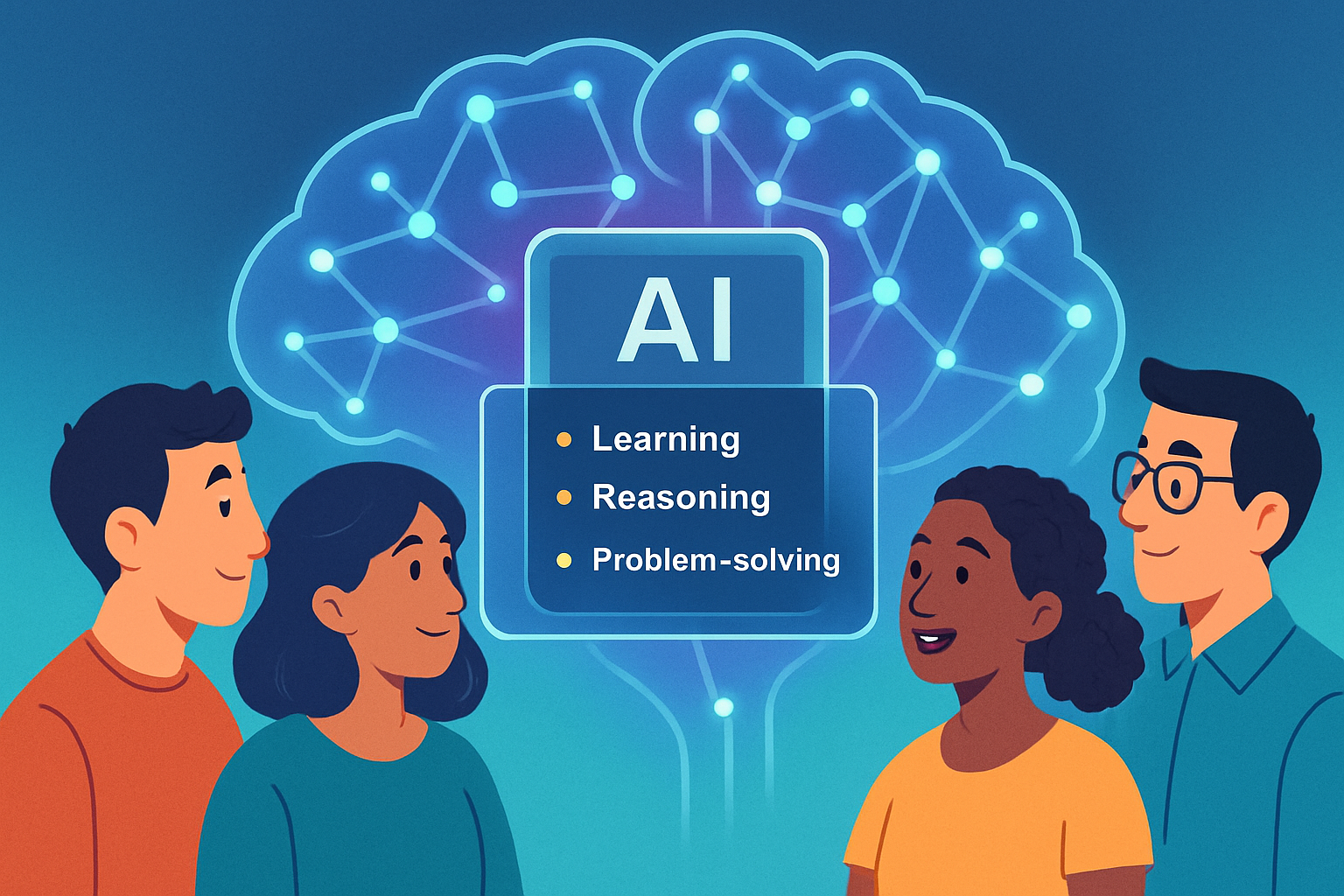AI for Beginners: Understanding Artificial Intelligence with Real Examples
Demystifying AI for beginners. Understand the basics of Artificial Intelligence with real-life examples and practical applications. Start your AI journey today!

What is AI? A Simple Explanation for Beginners
Artificial Intelligence (AI) sounds futuristic and complicated, but at its core, it's about making computers think and act like humans. Instead of just following pre-programmed instructions, AI systems can learn, adapt, and solve problems.
Think of it like teaching a dog a new trick. You don't tell it exactly how to move its paws or wag its tail. You show it what you want it to do and reward it when it gets it right. AI learns in a similar way, through data and feedback.
The Basics: What Makes AI, AI?
There are a few key ingredients that make something qualify as AI:
- Learning: The ability to improve performance over time based on experience or data.
- Reasoning: Using information to draw conclusions, make decisions, or solve problems.
- Problem Solving: Identifying and implementing solutions to achieve a desired outcome.
- Perception: The ability to interpret sensory input, like images, sounds, or text.
AI isn't magic. It's built on algorithms, which are sets of rules and instructions that computers follow. These algorithms are designed to mimic human cognitive abilities.
Types of AI: Narrow vs. General
We often hear about different types of AI, but the main distinction to understand is between:
- Narrow AI (or Weak AI): Designed to perform a specific task, like playing chess or recognizing faces. This is the type of AI we see most often today.
- General AI (or Strong AI): Possesses human-level intelligence and can perform any intellectual task that a human being can. This is still largely theoretical.
So, the AI that recommends movies on Netflix is Narrow AI. It's very good at suggesting movies based on your viewing history, but it can't do anything else.
Real-Life Examples of AI You Use Every Day
AI is already all around us, often in ways you might not even realize:
1. Virtual Assistants
Siri, Alexa, and Google Assistant are powered by AI. They can understand your voice, answer your questions, set alarms, and control smart home devices.
2. Recommendation Systems
Netflix, Amazon, and Spotify use AI to suggest movies, products, or songs you might like based on your past behavior.
3. Spam Filters
Your email provider uses AI to identify and filter out spam messages, keeping your inbox clean.
4. Navigation Apps
Google Maps and Waze use AI to analyze traffic patterns and suggest the best routes to your destination.
5. Facial Recognition
Used in smartphones, security systems, and even social media to identify people in photos and videos.
6. Chatbots
Many websites use chatbots to provide customer support, answer questions, and guide users through processes.
How AI is Changing Industries
AI is revolutionizing various industries, creating new opportunities and efficiencies:
- Healthcare: AI is being used to diagnose diseases, develop new treatments, and personalize patient care.
- Finance: AI is used for fraud detection, risk assessment, and algorithmic trading.
- Manufacturing: AI is automating production processes, improving quality control, and optimizing supply chains.
- Transportation: Self-driving cars and trucks are becoming a reality thanks to AI.
Getting Started with AI: Tools and Resources
If you're interested in exploring AI further, there are many accessible tools and resources available:
- Online Courses: Platforms like Coursera, edX, and Udacity offer courses on AI and machine learning for all skill levels.
- No-Code AI Tools: Services like Teachable Machine and RunwayML allow you to build AI models without writing any code.
- AI Automation Platforms: Platforms like Make.com allow you to connect different apps and services with AI, automating workflows and creating powerful solutions. Imagine automatically summarizing customer feedback from different sources and sending it to your team, all powered by AI. This is just one example of the possibilities with platforms like Make.com.
- AI Communities: Join online communities and forums to connect with other AI enthusiasts, ask questions, and share your projects.
The Future of AI
AI is constantly evolving, and its potential impact on society is immense. As AI technology continues to advance, it's crucial to understand its capabilities and limitations. From automating mundane tasks to solving complex problems, AI is poised to shape the future in profound ways.
By taking the time to learn about AI, even as a beginner, you can position yourself to take advantage of the opportunities it presents and contribute to its responsible development. Don't be intimidated by the complexity – start with the basics, explore real-world examples, and embrace the learning process. The world of AI is waiting to be discovered!
Frequently Asked Questions
What is Artificial Intelligence (AI)?
Artificial Intelligence (AI) is the ability of a computer or machine to mimic human intelligence, such as learning, reasoning, problem-solving, and perception.
How can a beginner use AI for automating tasks?
Beginners can use no-code AI tools and automation platforms like Make.com to connect apps and automate workflows, even without coding experience.
Is AI difficult to learn for someone new to technology?
While AI can seem complex, there are many beginner-friendly resources available, including online courses and user-friendly tools, making it accessible to newcomers.
What are some everyday examples of AI?
Common examples include virtual assistants (Siri, Alexa), recommendation systems (Netflix, Amazon), and spam filters in email.
Affiliate Disclosure: Some of the links on this site are affiliate links. I earn a small commission if you make a purchase through them—at no extra cost to you. Thank you for your support!